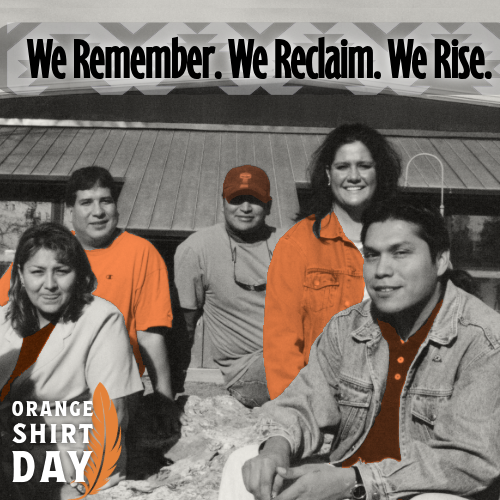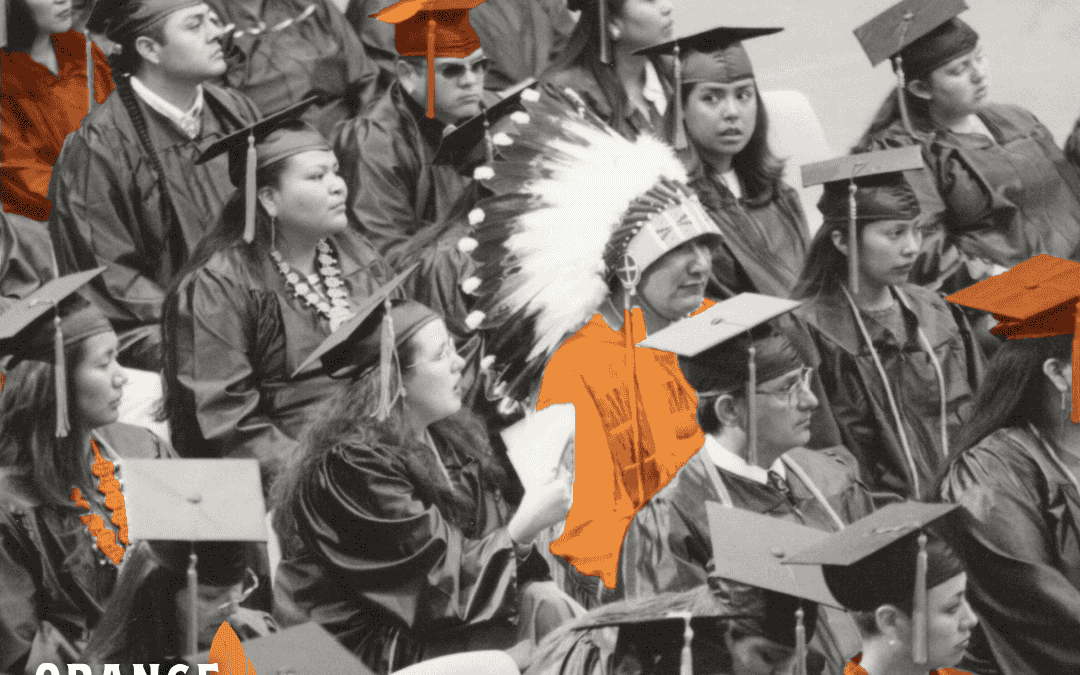Last week we shared the “Dear Colleague” letter here from the current Administration’s Office of Civil Rights in the Department of Education following the Trump Administration’s Executive Orders on Radical Indoctrination and anti-DEI actions. The letter advised schools with federal grants and contracts that the Department considers any decisions or benefits based on race, color, or national origin to be a violation of Title VI of the Civil Rights Act of 1964. A preliminary injunction was issued after a legal challenge brought by several organizations challenging the letter’s unconstitutionality, including the National Association of Diversity Officers in Higher Education, American Association of University Professors, Restaurant Opportunities Centers United, and the City of Baltimore.
Many organizations like the American Indian College Fund, in addition to those who challenged the Executive Order in court, reaffirmed their values which are grounded in the belief that we all contribute to the common good through education. Here at the College Fund we believe all Native people who desire an education deserve the opportunity to ensure their participation in a strong, economically thriving, democratic nation.
In addition to these events, the efforts by the Trump Administration to diminish and eventually dismantle the Department of Education are of deep concern across all education communities. So exactly what is the role of the Department of Education? How does it impact education (and specifically Native students, of which a majority rely upon grants and scholarships to access college) in America? And why are accessibility and inclusion important to students and America?
Simply put, the Department of Education oversees programs and policies at public schools to ensure students access to a higher education, while protecting the quality of that education through oversight to ensure students get a quality, accredited degree.
America prides itself on being a land of opportunity regardless of one’s racial, religious, cultural, or financial background. The Department of Education provides financial resources for students from modest means to access higher education through federal grants, loans, and work-study opportunities. Students who may have been precluded from a brighter future can afford a higher education and get one—and contribute to a more competitive, productive, and qualified American workforce.
By setting quality standards and recognizing accrediting agencies to ensure students are getting a quality education, the Department protects students, taxpayers, lenders, and the nation.
By enforcing student civil rights, the Department ensures higher education institutions do not discriminate in the application process, on campus, in housing, and in the classroom.
And by gathering and analyzing data about higher education, the Department informs educational policy in the United States, including funding for science, technology, engineering, and mathematics programs, research education opportunities, and more.
After the issue of the Trump Administration’s Executive Order, many institutions complied in advance to illegal and unconstitutional dictates delineated in a Dear Colleague letter. As Federal Judge Adam B. Abelson explained in a nationwide preliminary injunction on Donald Trump’s January 21 Executive Order attacking Diversity, Equity, and Inclusion programs, the First and Fifth Amendment forbid the President’s attempt to impose his views on the nation through attempts to restrict speech, without clarity or justification, while disregarding the impact to the citizens he was elected to serve.
So how did the EO impact our nation and TCU communities in just a short time?
-
- It put the jobs and livelihoods of countless educators, education professionals, students, and communities at risk.
- It sought to establish a legal framework to attack anyone or any organization that celebrates diversity or attempts to give all students a fair chance, according to the mayor of Baltimore, Maryland, who joined the legal action.
- Many individuals and institutions censored themselves for fear of losing federal funding or being targeted by federal investigations for ensuring inclusive education policies and practice. Not incidentally, inclusion is one of the goals of federal anti-discrimination laws which have been uncontroversial and legally recognized for decades in education.
Of course, as educators we want students and institutions to follow the law—and to have our national leaders do so, too. At the American Indian College Fund, we will continue to adhere to our values. For that reason, we will continue to share what is happening in the courts and continue to call upon and thank our supporters, students, and communities who help ensure Native students’ access to a life-changing higher education.
We would also thank the private sector supporters who stand with us and call upon them to continue to support Native higher education, ensuring our students continue to have the opportunity to make their dreams a reality.
What you can do: · Please share our blog link and social media feeds with your networks (found at the top of our website at collegefund.org)
-
- Ask your networks to continue to monitor issues impacting Native higher education on our page and in the media.
- Ask your networks to join us and add their voices to support equitable, affordable education, the Department of Education, and issues impacting tribal colleges.
Read the Complaint for Injunctive and Declaratory Relief and the Memorandum of Law in Support of Plaintiffs’ Motion for a Temporary Restraining Order.









